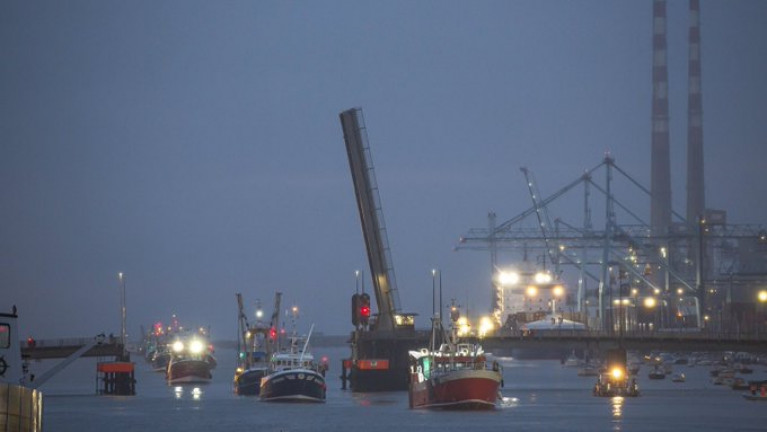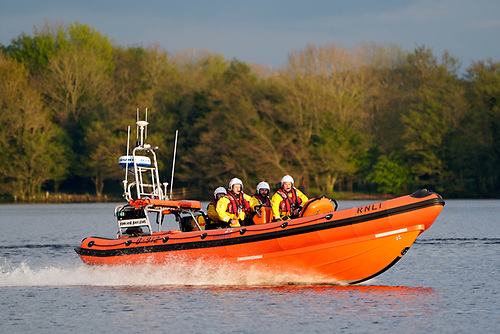Displaying items by tag: EU Fisheries
Fishermen formed a flotilla of 55 trawlers from all around the Irish coast to gather at the entrance to Dublin Port before dawn prior to travelling up the River Liffey through the East Link Toll Bridge to Sir John Rodgerson's Quay.
The fishermen, reports RTE News, are protesting over quotas cuts, the impact of Brexit and the EU Common Fisheries policy in the second such protest in as many months.
In May, a flotilla of trawlers from the south, southwest and southeast of the country travelled to Cork harbour before holding a rally in the city.
However, fishermen from Donegal, Galway, Cork, Louth, Wexford, Waterford and Dublin are taking part in today's protest, and the action has the support of the country's six main fishing organisations.
The Irish fishing industry is worth over €1 billion to the economy, with 16,000 local people employed in fishing and processing.
Brexit saw the value of the national quota cut by 15%.
More here on this large-scale protest held in the capital.
Marine Minister Takes On Donegal Supertrawler Fleet Over Multimillion Euro Mackerel Fishery
#TerritorialWaters - Marine minister Michael Creed writes The Irish Times faces a clash with the influential Donegal supertrawler fleet following his decision to review the share-out of the lucrative mackerel fishery.
Mr Creed has also said he was committed to legislation allowing northern and southern fishing vessels reciprocal fishing rights within the island’s territorial waters, in spite of opposition within the industry.
He has also warned of a “very real problem” if Westminster “puts a ring around its territorial waters” when it leaves the EU, given that 38 per cent of Irish catches are in British waters.
The Cork North-West TD secured a 6 per cent overall increase in Irish fish quotas for this year in Brussels last month, including an additional mackerel allocation valued at about €10 million.
Mackerel is Ireland’s most important commercial fishery, with a value of €64 million last year for the Irish fleet, according to Bord Iascaigh Mhara.
Mr Creed conceded to a request from the Irish South and West Fishermen’s Organisation to review the share-out of an additional quota.
The move has been criticised by the Killybegs Fishermen’s Organisation, representing the Donegal-based fleet that pioneered the hunt for the valuable migratory stock –and which has held up to 87 per cent of the annual share-out.
For more click here including about four mussel fishermen who as previously covered on Afloat took legal action that led to a Supreme Court ruling in their favour.






























































